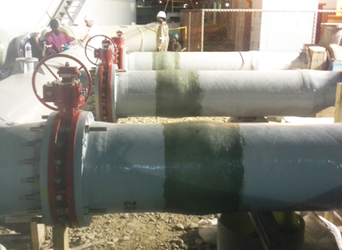5 Environmental Benefits of Fiberglass Tanks
In a world increasingly concerned with environmental conservation and sustainability, every industry is seeking ways to minimize its impact on the planet. One notable contribution to this effort comes from the use of fiberglass tanks in various applications. These tanks, made from Fiber Reinforced Plastic (FRP), offer several environmental benefits that help reduce industries’ carbon footprint, ranging from chemicals to water treatment.
In this blog, we will explore five key environmental advantages of fiberglass tanks.
Durability and Longevity
Fiberglass tanks are renowned for their exceptional durability and longevity. Unlike traditional materials like steel or concrete, fiberglass does not corrode, rust, or degrade over time. This longevity reduces the need for frequent replacements, ultimately resulting in fewer resources being consumed for tank production and disposal. Additionally, the extended service life of fiberglass tanks reduces the environmental impact associated with manufacturing and transporting replacement tanks.
Reduced Resource Consumption
The production of fiberglass tanks typically requires fewer resources than alternatives like steel or concrete. Fiberglass is lightweight, which means lower energy requirements for manufacturing and transportation. Moreover, the raw materials used in fiberglass production are often readily available and require less processing than materials like steel. This reduction in resource consumption contributes to lower greenhouse gas emissions and a smaller ecological footprint.
Corrosion Resistance

One of the primary environmental benefits of fiberglass tank installations is their resistance to corrosion. Corrosion can lead to leaks and spills, causing environmental contamination and costly cleanup efforts. Fiberglass tanks, on the other hand, remain corrosion-free even when storing corrosive materials, preventing harmful substances from entering the environment. This protects ecosystems and reduces the need for soil and groundwater remediation.
Leak Prevention
Fiberglass tanks are designed with tight seams and seals, minimizing the risk of leaks and spills. Unlike some other tank materials that can develop cracks or vulnerabilities over time, fiberglass tanks maintain their integrity throughout their service life. This proactive approach to preventing leaks not only safeguards the environment but also avoids the associated cleanup costs and potential legal liabilities.
Recyclability
At the end of their long service life, fiberglass tanks can often be recycled. The fiberglass material can be repurposed into new products, reducing the amount of waste sent to landfills. Recycling fiberglass tanks promotes a circular economy and helps conserve resources by reusing materials instead of relying solely on virgin resources for new tank production.
Considering Upgrading from Plastic to an FRP Tank?
Need Expert Fiberglass Inspection Services? Look no further than Hudson Fiberglass! With over five decades of experience in FRP tank installation, repairs, inspections, and modifications in North Florida, we assure top-quality services at competitive rates.
Get in touch with us today to request a complimentary service quote.



